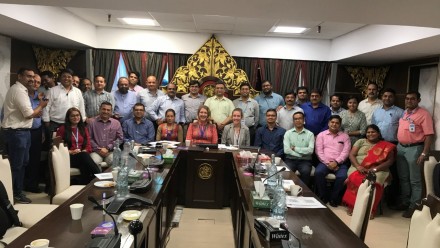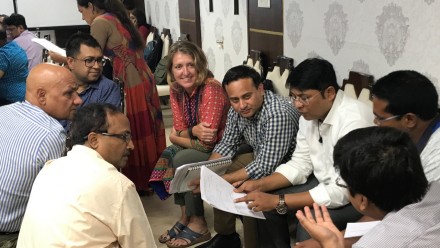Advancing the One Health Agenda
Share
MAE program helps develop a One Health case study and learning opportunity on an anthrax outbreak in people and cattle in Uganda.
Outbreaks of zoonotic diseases are challenging for field epidemiologists and other responders. Simultaneous illness and deaths in people and animals require a coordinated response between public health, animal health and environmental health agencies – known as the One Health Approach. Most public health epidemiologists, however, receive very little training in how to work effectively across disciplines and sectors to achieve disease control. As a result, opportunities for effective disease prevention and control are often missed. Seventy percent of emerging infectious diseases are zoonotic, as such it is vital that field epidemiologists are familiar with One Health principles and practice.
Training Programs in Epidemiology and Public Health Interventions Network (TEPHINET), a program of the Task Force for Global Health, contracted Ausvet and the Master of Applied Epidemiology program at Australian National University, to develop a One Health case study based on an outbreak of anthrax in people and cattle in Uganda. The case study will be made available to Field Epidemiology Training Program (FETP) scholars around the world through TEPHINET.
In late July Ausvet and ANU piloted this case study with 27 FETP scholars in Delhi, India. Despite the high prevalence of zoonotic diseases such as rabies, anthrax, brucellosis and leptospirosis, most of the medically-trained Indian FETP scholars said that they rarely had the opportunity to interact with animal health practitioners as part of their work. Many scholars and facilitators (FETP alumni) commented that the pilot case study was their first formal training in One Health, and were looking forward to implementing One Health principles in their future work.















